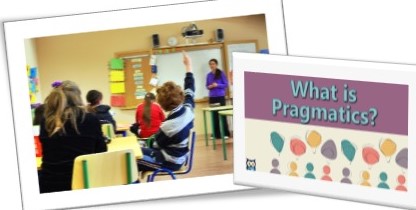PRAISE SPEECH AND PRAGMATICS IMPLICATION IN CLASROOM DISCOURSE ITERACTION AMONG JUNIOR HIGH SCHOOL STUDENTS
Abstract
Interaction is a communication process that can occur anywhere and anytime. Communication can take place whether in formal or non-formal situations. A classroom is a place where formal interaction occurs, involving communication between students and teachers, and vice versa, between teachers and students or speakers and interlocutors. In communicating, the speaker has a purpose to convey, and this purpose will be understood by the interlocutor. In this context, in classroom interaction, the teacher plays a strategic role. This strategic role is related to the teacher's formal tasks as an educator and instructor. Praise given by the teacher carries certain implications for students, such as motivating them to be more diligent, enthusiastic, and diligent in their studies to achieve good results. Similarly, students can also give praise to both teachers and fellow students. This research examines the Pragmatic Implications of praise speech in interactions among junior high school students. The aim is to describe praise speeches that have pragmatic implications. It adopts a descriptive qualitative approach, focusing on language synchronically. The findings reveal several Pragmatic Implications of praise, including praising as a mode of commanding, reinforcing, criticizing, and mocking.
Downloads

Copyright (c) 2023 Novita Tabelessy, Carolina Sasabone, Petrus J. Pattiasina

This work is licensed under a Creative Commons Attribution 4.0 International License.





